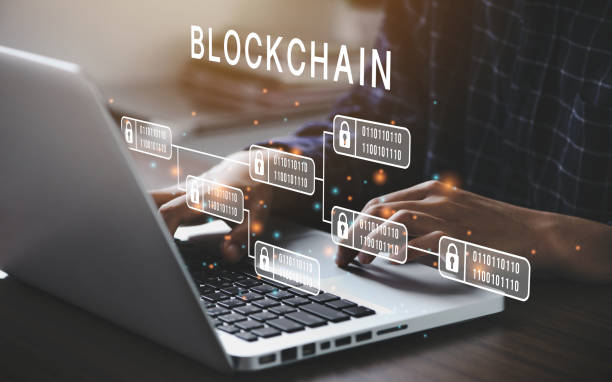Feeling overwhelmed with endless topics and uncertain where to start? You’re not alone. Blockchain Developer interview preparation can be challenging, but a clear, structured roadmap can help you tackle those pain points head-on and boost your confidence. Here’s an engaging guide to help you navigate your journey—from day one to interview day.
Overcoming Common Interview Prep Pain Points
- Topic Overload: From smart contracts to consensus algorithms, cryptography, and security, there’s a lot to cover.
- Lack of Structured Guidance: Without a clear roadmap, it’s easy to waste time on less relevant topics.
- Time Management: Balancing learning blockchain fundamentals, coding, and interview prep with daily responsibilities can be tough.
- Insufficient Real-World Practice: Many candidates struggle to apply their knowledge in real-world scenarios, making it harder to stand out.
- Feedback Gaps: Without feedback, it’s difficult to know if you’re on the right track.
Your 4-Week Preparation Roadmap
A dedicated, week-by-week plan can turn chaos into clarity. Here’s a suggested 4-week timeline to help you prepare for a Blockchain Developer interview.
Week 1: Build Your Foundation
Focus: Blockchain Basics & Smart Contracts
Daily Goals:
- Day 1-2: Learn blockchain fundamentals—distributed ledgers, consensus mechanisms (Proof of Work, Proof of Stake, etc.), and cryptographic principles.
- Day 3-4: Get hands-on with Solidity (Ethereum) or Rust (Solana). Learn how to write basic smart contracts.
- Day 5: Explore key blockchain architectures, including Layer 1 and Layer 2 solutions.
- Day 6: Deploy a simple smart contract using platforms like Remix, Hardhat, or Truffle.
- Day 7: Rest and review key learnings with our Interview Question Generator.
Tip: Combine reading and hands-on coding to solidify your understanding of blockchain fundamentals.
Week 2: Deep Dive into Smart Contracts & Security
Focus: Advanced Smart Contracts & Security Best Practices
Daily Goals:
- Day 1-2: Study smart contract development lifecycle, gas optimization, and contract interactions.
- Day 3: Learn about common smart contract vulnerabilities (e.g., reentrancy attacks, integer overflow) and how to mitigate them.
- Day 4: Conduct hands-on debugging and security audits using tools like MythX and Slither.
- Day 5: Explore the ERC-20, ERC-721, and ERC-1155 token standards.
- Day 6: Work on coding challenges and implement secure smart contract patterns.
- Day 7: Reflect on your progress and practice smart contract-related questions.
Tip: Security is a key concern in blockchain development—demonstrating knowledge of best practices can set you apart from other candidates.
Week 3: Master Blockchain Ecosystems & Real-World Applications
Focus: Consensus, Decentralized Apps (DApps), & Performance Optimization
Daily Goals:
- Day 1: Study consensus mechanisms (PoS, PoW, Delegated PoS, Byzantine Fault Tolerance).
- Day 2: Learn about blockchain scalability solutions such as sharding, rollups, and sidechains.
- Day 3: Explore DeFi protocols, NFTs, and real-world blockchain applications.
- Day 4-5: Develop a small DApp using Web3.js, Ethers.js, or Solana’s Anchor framework.
- Day 6: Optimize blockchain performance, focusing on reducing gas costs and improving transaction throughput.
- Day 7: Summarize your learnings and prepare a mock technical presentation.
Tip: Hands-on projects and explaining blockchain concepts clearly will help you stand out in interviews.
Week 4: Behavioral Interviews & Final Prep
Focus: Soft Skills, System Design, & Mock Interviews
Daily Goals:
- Day 1: Prepare for behavioral questions using the STAR method.
- Day 2: Review your past blockchain projects and be ready to discuss your contributions.
- Day 3: Record yourself answering technical and behavioral questions.
- Day 4: Conduct a mock system design interview for a blockchain-based application.
- Day 5: Seek feedback from peers or mentors.
- Day 6: Review blockchain whitepapers to refine your understanding.
- Day 7: Relax, review key concepts, and visualize your interview success.
Tip: Clear communication and problem-solving skills are just as important as technical expertise in blockchain development.
Bringing It All Together
By following this roadmap, you’ll tackle common interview prep pain points and ensure you’re fully prepared. Remember:
- Break It Down: Focus on one aspect of blockchain development at a time.
- Stay Consistent: Daily practice leads to steady progress.
- Use the Right Tools: Leverage interactive resources like our Interview Question Generator for practice.
- Confidence is Key: Trust in your preparation, and you’ll perform at your best.
Start your journey today, and take the next step toward becoming a Blockchain Developer! 🚀




